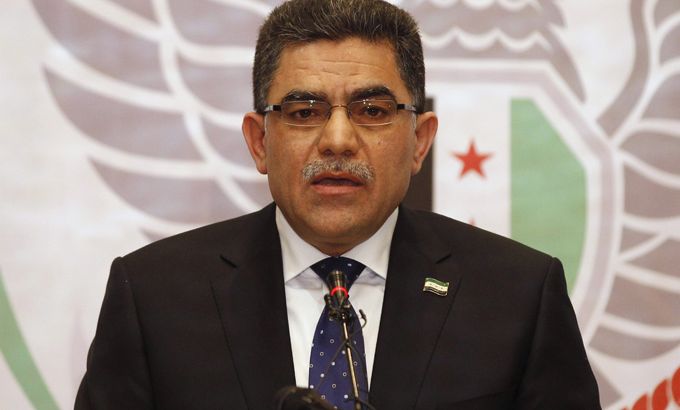
Syria: Governing in a war zone
Will Ghassan Hitto, the new interim prime minister for the Syrian opposition, be able to unify rebel-held areas?
It has been a week of major developments in the Syrian conflict – on the ground and on the diplomatic front.
Last week, the Syrian government accused rebel fighters of using chemical weapons, but the rebels say the government fired a scud missile armed with chemicals.
|
“In his first speech [Hitto] told us that his top priority is to overthrow of the regime and that he insists on no negotiations or dialogue with the regime whatsoever. Now to my mind, the job of prime minister is not to set up such a political agenda but to do actual work on the ground, to run all the municipal tasks such as water, electricity and to bring order and normal life to the areas he is going to govern.“ – Rim Turkmani, Building the Syrian State |
A chemical watchdog based in Europe says there is no evidence that either side used chemical components against the other.
Meanwhile, Syrian opposition members have named their new interim prime minister: Ghassan Hitto.
Hitto is 50 years old and used to be an IT manager in California.
He is American educated and has US citizenship. But he moved to Turkey to co-ordinate aid for opposition-held territory.
He will be tasked with forming a cabinet and securing control of opposition-held areas of Syria.
The opposition hopes Hitto will unify rebel-held areas and prioritise getting aid to them.
The war in Syria is also taking a toll on the economy and on infrastructure.
The economy is severely affected, and finding out just how much has been destroyed will be difficult. But it is clear that two years of fighting has set the country back considerably.
In 2010, before the uprising, Syria’s gross domestic product (GDP) was valued at about $57.5bn.
|
“[Hitto] was the best man for the job given the available candidates …. He reports to the coalition and he has a mandate to run the liberated area and provide services because the state has disappeared there. And we have started to see small regions and new forces popping up, and we would like to see that the whole place is united.“ – Louay Safi, member of Syrian National Coalition |
Now, it has fallen to just under $30bn – a drop of about 35 percent.
The Syrian pound has lost about half its value. It used to trade at about 47 pounds to the dollar. It now goes for around 85 pounds, and well above 90 on the black market.
Homes, roads and bridges across Syria will need rebuilding. One in five schools is damaged or destroyed. And one in every three hospitals can no longer provide services.
So, who is funding this war?
And, will the new interim Prime Minister Ghassan Hitto be able to deliver competent governance inside a war zone? And will he be able to solve the problems facing the opposition?
To discuss this, Inside Syria with presenter Stephen Cole is joined by guests: Rim Turkmani, a public relations officer for Building the Syrian State, which is a political movement calling for the establishment of a democratic civil state in Syria; Fawaz Gerges, the director of the Middle East Centre and a professor of international relations at London School of Economics; and Louay Safi, a senior member at the Syrian National Coalition.
GHASSAN HITTO:
- Syrian National Coalition picked Ghassan Hitto as interim prime minister
- Hitto lived in the US, was member of the Syrian American Council
- Hitto received 35 votes out of 50 cast by SNC members in Istanbul
- Hitto has been working on securing humanitarian aid for the uprising
- There are concerns an interim government will ruin any chance of transition
- Interim PM says his group must work to bring services to people
- Hitto says opposition will bring basic services to liberated areas
- Hitto: We cannot forgive those countries supporting al-Assad